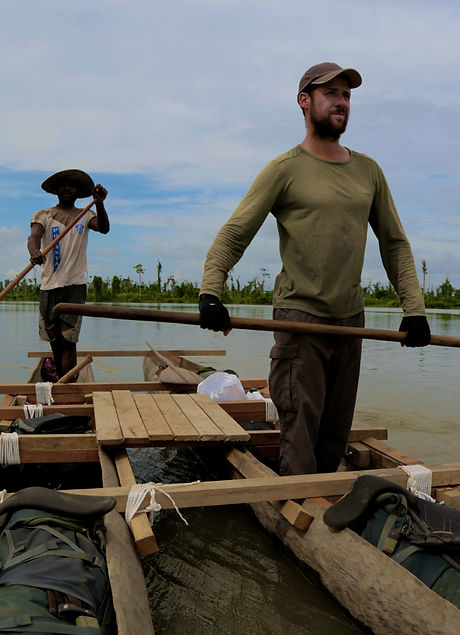
PAPUA NEW GUINEA
EXPEDITION

AN UNMOTORISED CROSSING


The third stage was entirely waterborne, and the result of months of trekking through jungle and mountains. They bought two dugout canoes and had a basic boat constructed. The team then faced the arduous task of navigating approximately 550 miles down the tidal Fly River, through the sparsely populated districts of the Middle and Lower Fly, to the end goal of Daru, an island sitting to the south of PNG, in salt water.
This stage was full of natural and man made perils. Tidal bores and wind posed a real threat to such a small vessel, and flash floods dominated the swampy landscape of flood plains as far as the eye can see.
The flood plains of the Lower Fly also provide a rich breeding ground for salt water crocodiles, who, as natural predators in the area, were another threat to the team.
The districts through which the team traveled in stage three are the least populous of the expedition, and one of the most remote and inaccessible part of the country.
Patrick and Richard successfully made it through to Daru, a small island south of PNG, and as far as we understand, became the first team to do an unmotorised crossing of PNG's widest point.
